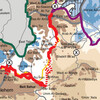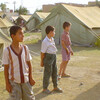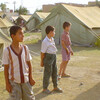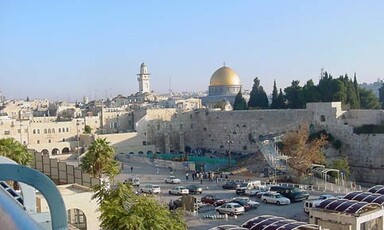
With Gaza food crisis looming, UN official urges opening of crossing with Israel
20 March 2006
As the humanitarian crisis in the Gaza Strip deteriorates with food and other supplies running short due to the Israeli closure, a senior official of the main United Nations agency helping Palestinian refugees said he sincerely hopes Israel’s opening today of the Karni crossing point is “the beginning of a return to normality.” “The situation on the streets of Gaza was worse today than it was yesterday as the half hour opening of Karni yesterday afternoon had absolutely no impact on the developing humanitarian crisis,” the Director of Gaza operations of the UN Relief and Works Agency for Palestine Refugees in the Near East (UNRWA), John Ging, said. Read more about With Gaza food crisis looming, UN official urges opening of crossing with Israel








